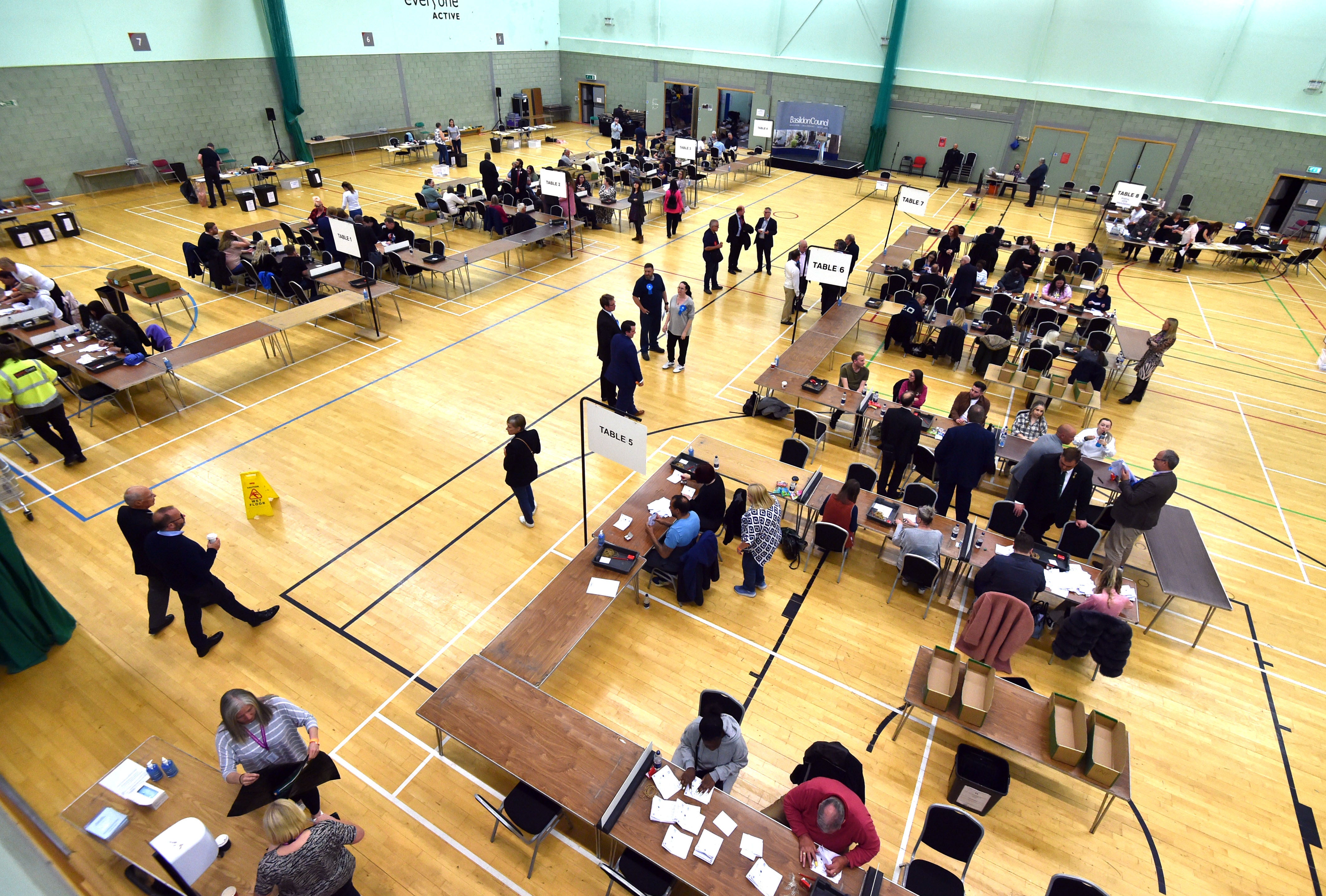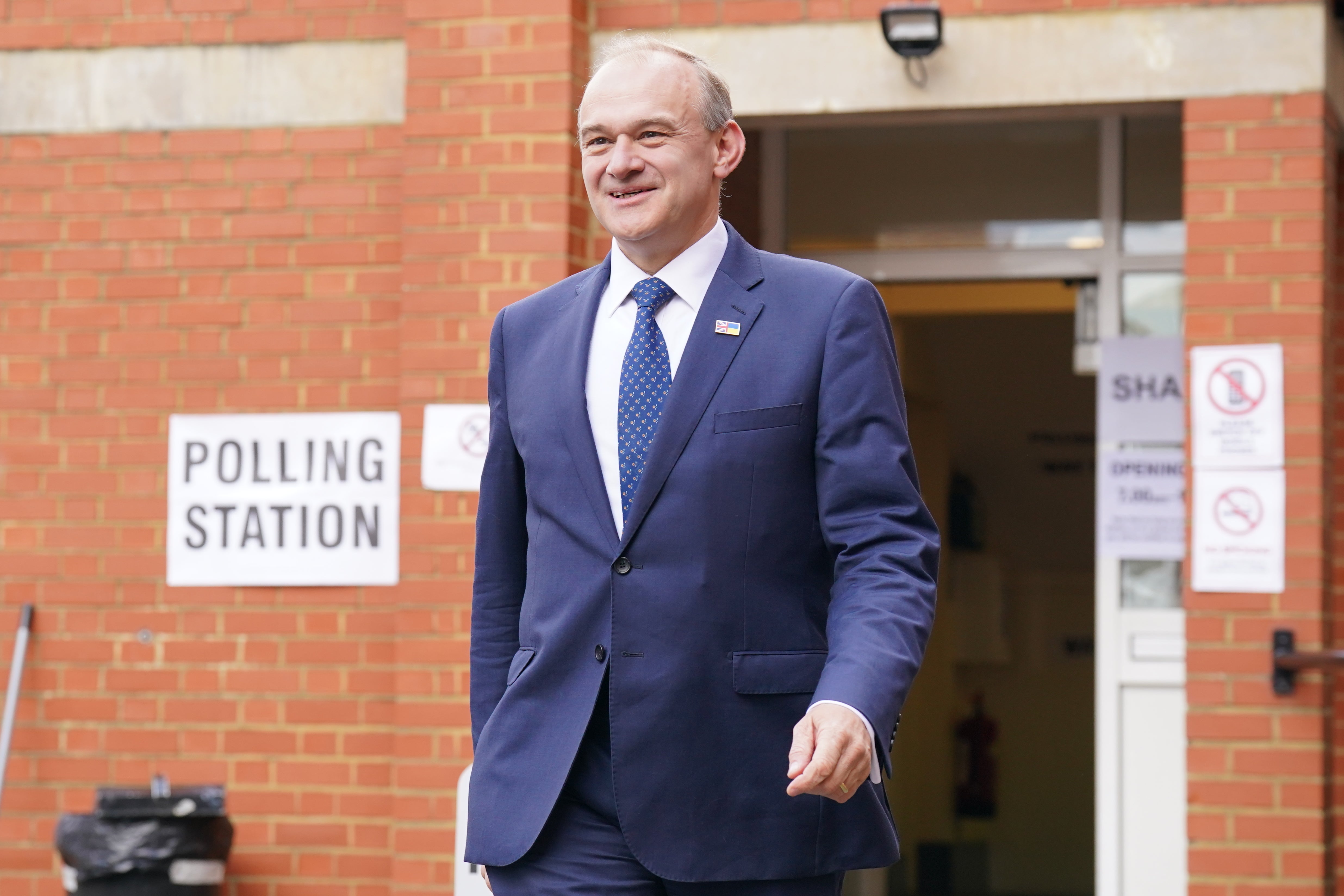
Boris Johnson faced a backlash from local Tory leaders as his party lost a flagship London authority to Labour and suffered setbacks across England.
While Sir Keir Starmer’s party gained ground in the capital by taking the totemic Tory authority in Wandsworth, there was a mixed picture elsewhere with the loss of Hull to the Liberal Democrats but success in the new Cumberland authority.
As dozens of Tory councillors lost their seats against a backdrop of the row about lockdown-busting parties in No 10 and the cost-of-living crisis, local Conservative leaders criticised the Prime Minister.
John Mallinson, leader of Carlisle City Council which will be replaced by the new Cumberland authority, told the BBC: “I think it is not just partygate, there is the integrity issue.
“Basically I just don’t feel people any longer have the confidence that the Prime Minister can be relied upon to tell the truth.”
In Portsmouth, where the Tories lost four seats, Simon Bosher the leader of the Conservative group said Mr Johnson should “take a good, strong look in the mirror” because “those are people that are actually bearing the brunt on the doorstep of behaviour of what’s been going on in Westminster”.
Ravi Govindia, leader of the Wandsworth Tories, said: “Let’s not be coy about it, of course national issues were part of the dilemma people were facing.”
After results were declared from 58 councils, the Tories had lost control of three authorities and were down 79 councillors, Labour had a net gain of two councils and 34 councillors, the Lib Dems had one extra authority and 34 more seats while the Greens had put on 19 councillors.
The loss of Wandsworth will be a significant blow because of its symbolic status in London.
It turned blue in 1978, a year before Margaret Thatcher’s election as prime minister and was reputedly her favourite council, renowned for its low taxes.
“Boris Johnson losing Wandsworth is monumental. This was the Tories’ jewel in the crown,” a Labour source said.
The Tories also lost control of Worcester to no overall control, with gains for the Greens and Labour.
Council seats are up for grabs in Scotland, Wales and many parts of England, while there are elections to Stormont in Northern Ireland.
But votes were only being counted in some of the English contests overnight, including key authorities in the capital.
As well as Wandsworth, Tories fear losses in Barnet and possibly Westminster on a difficult night for Mr Johnson’s party in the city he used to run.
The leader of the Labour group in Barnet, Barry Rawlings, told the BBC: “I’ve been feeling confident for a while.”

The elections take place following the partygate scandal and with concerns about a cost-of-living crisis underlined by grim economic forecasts from the Bank of England on polling day.
Mid-term elections are always difficult for a governing party, although as many of the English seats were last contested in 2018 during Theresa May’s chaotic administration, opportunities for opposition parties to make further gains may be limited.
A Tory source conceded “we expect these elections to be tough”.
Cabinet minister Brandon Lewis insisted Mr Johnson remained the right person to lead the party, amid speculation that a bad set of election results – coupled with any further revelations about No 10 lockdown-busting parties – could see more Tory MPs submitting letters of no confidence.
The Northern Ireland Secretary told Sky News: “I absolutely think we can win the next election, and I do think Boris Johnson is the right person to lead us into that.”
Policing minister Kit Malthouse told the BBC: “The further away you get from London, our sense is that the picture is better for us.”
In Rutland, where there is not even an election, the Tories suffered a blow as county council leader Oliver Hemsley announced he was leaving the party, claiming the area had been “ignored, side-lined and given no further improvements in our spending power” from the Government.
Labour’s campaign has been hit by Tory calls for Durham Police to look into whether Sir Keir broke Covid rules while campaigning before the 2021 Hartlepool by-election – something he has dismissed as “mudslinging”.
The Tories have also complained about a secret pact between Labour and the Lib Dems to maximise Conservative pain in marginal seats, something denied by both opposition parties.
Labour Party chair Anneliese Dodds acknowledged there would be “ups and downs” in the results but said she hoped they would show progress since the 2019 general election drubbing under Jeremy Corbyn.
Shadow work and pensions secretary Jonathan Ashworth acknowledged there was a mountain to climb for the party following the 2019 general election.
“It’s climbable, but my god it’s a big mountain because we got an absolute hammering in 2019, the worst result since the 1930s,” he told the BBC.
The Liberal Democrats focused on making further inroads in Tory heartlands – the “Blue Wall” in southern England – following recent Westminster by-election successes in North Shropshire and Chesham and Amersham.

Party leader Sir Ed Davey said: “I am optimistic that thanks to their hard work, the Liberal Democrats will gain ground in areas across the Blue Wall where voters are fed up of being taken for granted by the Conservatives.”
But the Lib Dems secured victory in Hull in a straight fight with Labour for control of the authority.
In England, more than 4,000 councillors in 146 councils are standing for election in major cities including Leeds, Manchester, Birmingham and all 32 London boroughs.
All 32 councils in Scotland and all 22 in Wales are also holding elections.
In Northern Ireland voters went to the polls across 18 constituencies to elect 90 MLAs.
The unionist DUP and republican Sinn Fein are vying for the top spot in the election, which comes with the entitlement to nominate the next first minister.
A unionist party has always been the biggest in the Assembly, and previously the Stormont Parliament, since the formation of the state in 1921.
While the office of the first and deputy first minister is an equal one with joint power, the allocation of the titles is regarded as symbolically important.







